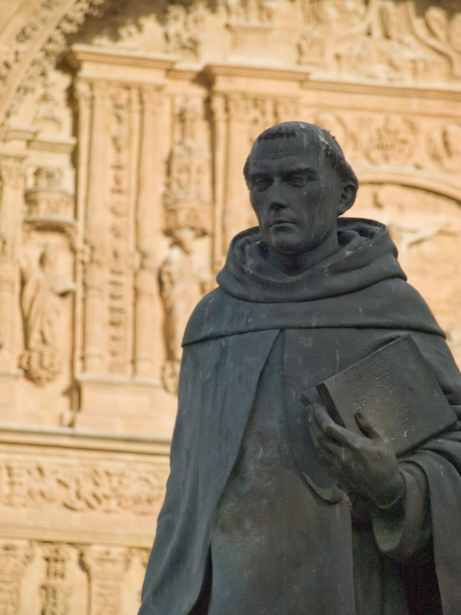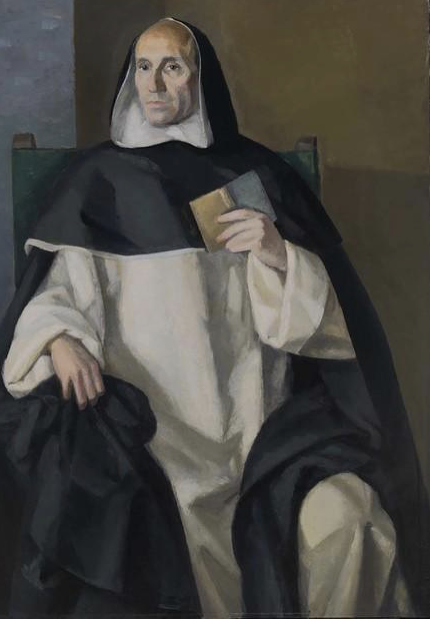Francisco de Vitoria was a 16th century Spanish theologian and jurist, considered one of the founders of modern international law and a central figure of the School of Salamanca. He was born in Burgos, Spain, around 1483 and died in Salamanca in 1546.
Initially educated in his hometown, Vitoria entered the Dominican Order and later studied at the University of Paris, where he was influenced by humanist ideas, (he had direct contact with Erasmus) and the renewed scholasticism that then predominated in Europe. He returned to Spain and was appointed professor of theology at the University of Salamanca in 1526, where he developed much of his intellectual work.
Francisco de Vitoria is especially recognized for his work in the development of thought related to the rights of indigenous peoples and the legitimacy of imperial power in the Americas. His lectures on the “Lectures on the Indians” and “Lectures on Civil Power” raised fundamental questions about sovereignty, the right of conquest, international trade, and the natural rights of people, regardless of their ethnic origin.
Vitoria argued that the natives of the newly discovered lands had their own rights like any other free people and that these rights should be respected by the conquerors. His ideas notably influenced the development of international law and were precursors of concepts such as national sovereignty and human rights.
In addition to his impact on international law, Francisco de Vitoria also left a significant legacy in moral theology and political philosophy, influencing contemporaries and disciples such as Domingo de Soto and later figures such as Hugo Grotius.
Vitoria was also a member of the so-called “Salamanca School”. This was an intellectual movement that flourished at the University of Salamanca, in Spain, mainly during the 16th century. This school is recognized for its important contributions to the development of economic, legal, political and theological thought. The members of this school were mostly theologians and jurists who attempted to reconcile the teachings of the Church with the emerging challenges of the modern world, especially those posed by the discovery of America and the expansion of international trade.

Main Features
1. International Law and Human Rights:
• The theologians of the School of Salamanca, such as Francisco de Vitoria and Francisco Suárez, are considered precursors of modern international law. They addressed issues such as sovereignty, the right of peoples to self-determination, and the legitimacy of war.
2. Economy:
• The economic discussions of the Salamanca School preceded and anticipated many of the ideas that Adam Smith would later develop in “The Wealth of Nations.” They discussed topics such as the value of money, inflation, and fairness in commerce. Martín de Azpilcueta, for example, is known for his analysis of inflation.
3. Theology and Moral Philosophy:
• They integrated Christian ethics and morality with the analysis of economic and political situations, trying to apply moral principles to economic and public life.
Impact and Legacy
The School of Salamanca not only influenced European thought, but also played a key role in the formation of legal and economic thought in the Western world. Its influence extended to the Enlightenment and beyond, affecting the development of several disciplines in Europe and the Americas. The work of the Salamanca School is an early example of how philosophy and theology can interact with practical real-world problems, and its contributions continue to be studied and appreciated in various academic areas today.

